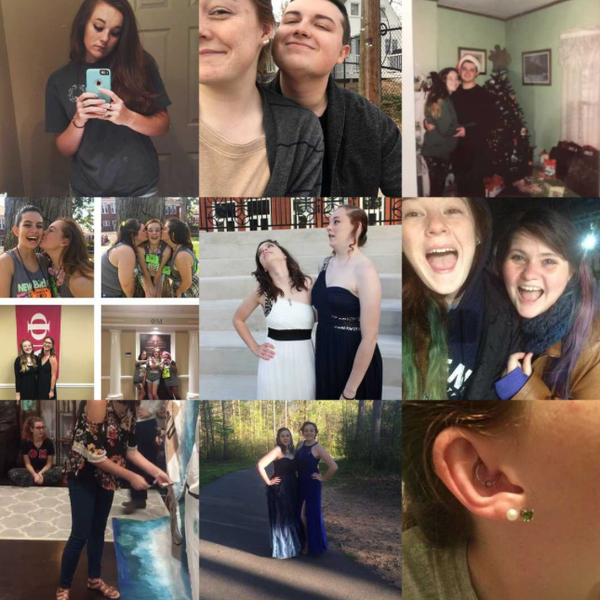Like most kids, I went through gradeschool without being taught anything about the effects of mental illness on people's lives. Mental illness was synonymous with the words "crazy" or "insane." When I was 8-years-old, I noticed that I would struggle with long periods of depression and prolonged anxiety attacks that would rattle me daily. I started having obsessions: if I didn't do something, something bad was going to happen. At school things would be fine, but as the afternoon turned to evening, and evening became night, I would feel increasingly uneasy and even experience irrational terror.
I did go to a therapist, who recommended that I have an EEG, so that a specialist could examen my brainwaves and see if something was abnormal. I remember having a consultation around a table full of doctors who asked me why I had horrible thoughts and terrors that struck me immobile. I was afraid to admit that there was anything wrong because taking medicine meant that I would be "crazy." My anxiety clung to that idea too. High school passed with sporadic upturns and downturns, always prompted by school subjects (like church history and martyrdom, which definitely filled my head with more terrifying ideas) as well as other events, like getting good or bad grades, starting a relationship or ending one, watching a scary movie, reading an encouraging book, etc. All of these things had some monumental effect on my mental health and happiness.
It wasn't until college that someone told me that mental illness is common, and it doesn't have to be a one-person journey. I had hope for the first time in ten years. I wasn't losing my mind. In my case, medicine was helpful. I had a biological issue, not a moral/spiritual crisis. I remember sitting in my religion class in eighth grade, hopelessly depressed, and hearing my teacher say that "Despair is the worst sin of all." That plunged me further into hopelessness, because I not only was depressed, but I felt guilty that I was depressed. A lot of times that is how our society treats people who struggle with mental illness. We seem to be a puzzle or an enigma with no solution.
Once I saw that my life could change for the better, ten things became clearer to me:
1. Things could change. I would move past my foulest moods, and one day life would be better.
2. My anxiety and depression are inherently linked. When I have an anxiety attack, it is almost always followed my a depressive downturn.
3. My obsessive-compulsive issues were caused by my anxious desire to find control in my life.
4. Sometimes being alone is more harmful than helpful. At the end of the day, being honest about my pain with my friends is more helpful, because a lot of times they have been struggling too, and we mutually support each other. It's important not to feel alone.
5. There is nothing shameful about mental illness. There is nothing shameful about mental illness. There is nothing shameful about mental illness.
6. A helpful metaphor that is often used is: Would you tell a person with a badly broken ankle to walk? Telling someone with depression or mental illness to be happy and function normally is just as ridiculous. Just because an illness seems invisible doesn't mean it is any less pertinent.
7. School, work, money, etc., are not as important as feeling okay. I came really close to leaving school early for spring break because of my anxiety. I couldn't handle the stress, but then I talked to a professor about it, and her empathy with my situation made me feel better and find the energy to finish the semester strong.
8. Healthcare is extremely important. It is just as important to be able to afford medicine for mental illness as it is to have affordable medicine for physical ailments.
9. Medicine is not always helpful, but it is for some people and shouldn't be stigmatized. Also, mental illness has been linked to vitamin deficiencies, so sometimes the solution has to do with tweaking one's diet or getting injections of certain vitamins, all of which cost money and should be easily acceptable.
10. Poverty is a big cause/result of untreated/uncontrolled mental illness. Growing up in a disadvantaged area, as a kid I was highly sensitive to the peple I would see living on the street and struggling with mental illness. Their mental issues became physical manifestations, but our society hardly works to reversing this effect. Instead of pity and compassion, we feel scorn and suspicion for those who have been the most unfairly treated.



















